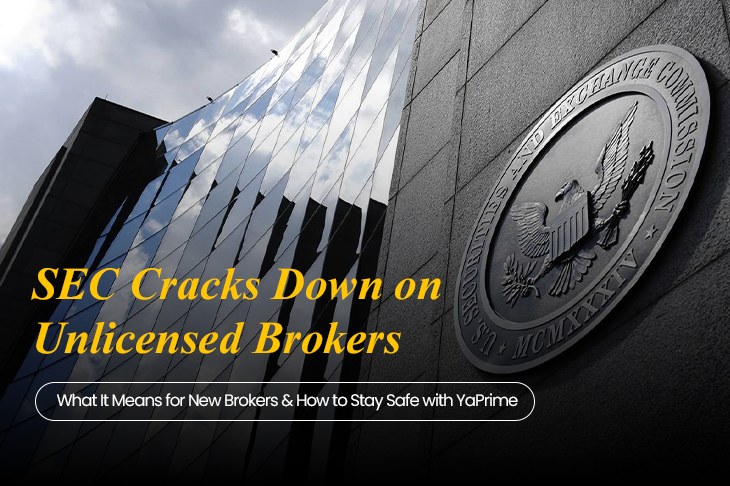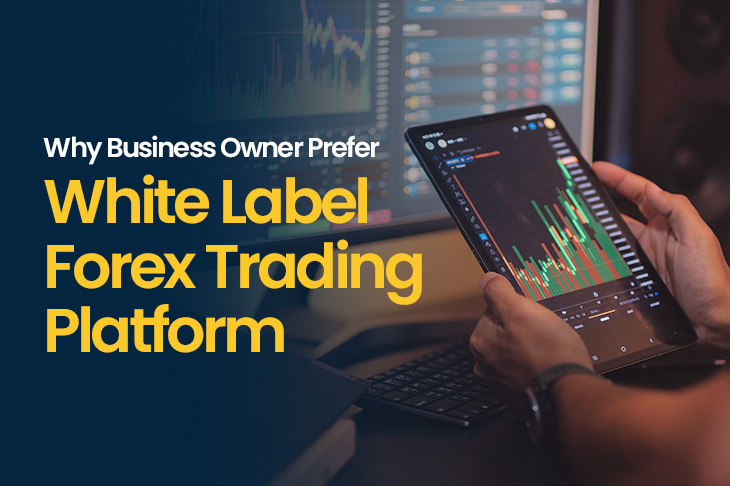How to Become a Licensed Forex Trading Broker
Forex brokers currently enjoy widespread popularity in the market. However, broker companies must possess a Forex license to engage in the legal processing of traders' transactions. Unlicensed brokers are avoided by traders due to the perceived illegality and insecurity associated with their activities.
Moreover, such broker entities may attract scrutiny from regulatory authorities. To circumvent regulatory issues and potential loss of clientele, Forex brokers must acquire a Forex license. In this blog by YaPrime, the leading provider of forex broker services, we will discuss the procedure for becoming a licensed forex trader or broker.

Determining the Ideal Jurisdictions for a Forex License
An initial consideration for aspiring brokers to know how to become a licensed forex trading trader/broker involves selecting a jurisdiction for business registration and broker license application. Based on factors such as Forex license costs, issuance duration, and the jurisdiction's reputation, countries can be categorized as follows:
Group A Countries: The United States and Switzerland. These jurisdictions, with their stringent requirements, provide access to high-profile clients. However, they are also the most expensive and demanding, with a minimum equity requirement of $20 million for a US Forex broker and a licensing timeframe of 1 to 2 years.
Group B Countries: Great Britain and Australia. These countries are less stringent regarding capital and account requirements. For instance, the UK mandates a minimum capital of $100 thousand, with a license issuance period of approximately 1 year, costing between $22 to $50 thousand.
Group C Countries: Cyprus, New Zealand, and Malta.
Group D Countries: Belize, British Virgin Islands, Cayman Islands, and Vanuatu. Forex brokers often favour C and D group countries due to their swift and cost-effective Forex license issuance.
Vanuatu, in particular, is a preferred choice among Forex brokers. This jurisdiction boasts minimal capital requirements of $50 thousand, and the license issuance process typically takes only 2-3 months after the submission of all necessary documents.
The Forex Licensing Process: A Concise Checklist
Irrespective of jurisdiction, a concise checklist for obtaining a Forex license includes the following steps:
1. Register a company.
2. Prepare corporate documents.
3. Pay state duties.
4. Develop a business plan, AML/KYC policies, and other requisite documents.
5. Complete and submit a Forex license application to the relevant authority.
6. Establish a corporate bank account.
7. Connect to a merchant account for processing bank payments.
While specific documentation requirements may vary by jurisdiction, the overall procedure remains similar.
Noteworthy is the Vanuatu Forex license, which is priced at $18 thousand and encompasses all checklist items. Vanuatu stands out as an optimal licensing choice for novice Forex brokers in 2020.
Supplementary Costs Associated with Obtaining a Forex License
In addition to the basic requirements, there are supplementary costs involved in acquiring a Forex license. These include:
1. Accounting services.
2. Virtual or physical office setup.
3. Employment of salaried personnel.
4. Addressing website formalities, including the creation of policies such as Terms of Use, Privacy Policy, and Cookies Policy, aligning with GDPR and payment system requirements.
YaPrime: The Leading Provider of Forex Broker Services
YaPrime, with its extensive knowledge of the forex market across various countries, is well-positioned to share its expertise. Why opt for YaPrime? We deliver comprehensive Forex broker services customised to the needs of Forex companies, considering factors such as legislative frameworks, budget constraints, residency, and other specifics. Contact us today.




